Industry Interview: The Beautiful Art of Selling a Long-Running Broadway Show
For five years, Beautiful, the Tony and Grammy Award-winning musical, has thrilled Broadway with the inspiring true story of Carole King's journey from teenage songwriter to the Rock & Roll Hall of Fame.
The show, which opened on Broadway on January 12, 2014, went on to become a Tony, Olivier, and Grammy Award-winning smash hit having been seen by almost 2,200,000 people and cumulative gross on Broadway of almost $250,000,000. Acclaimed productions have played London, Japan, Australia, and toured the United Kingdom. The North American tour is celebrating its third anniversary of sold out runs across the continent and is currently playing at Philadelphia's Academy of Music.
A key component to the show's longevity is the work of Broadway marketing agency Serino Coyne. Below, Vice President of Creative Strategy Thomas Callahan and Director of Marketing and Communications, Diana Salameh tell us all about what goes into selling a musical with such staying power.
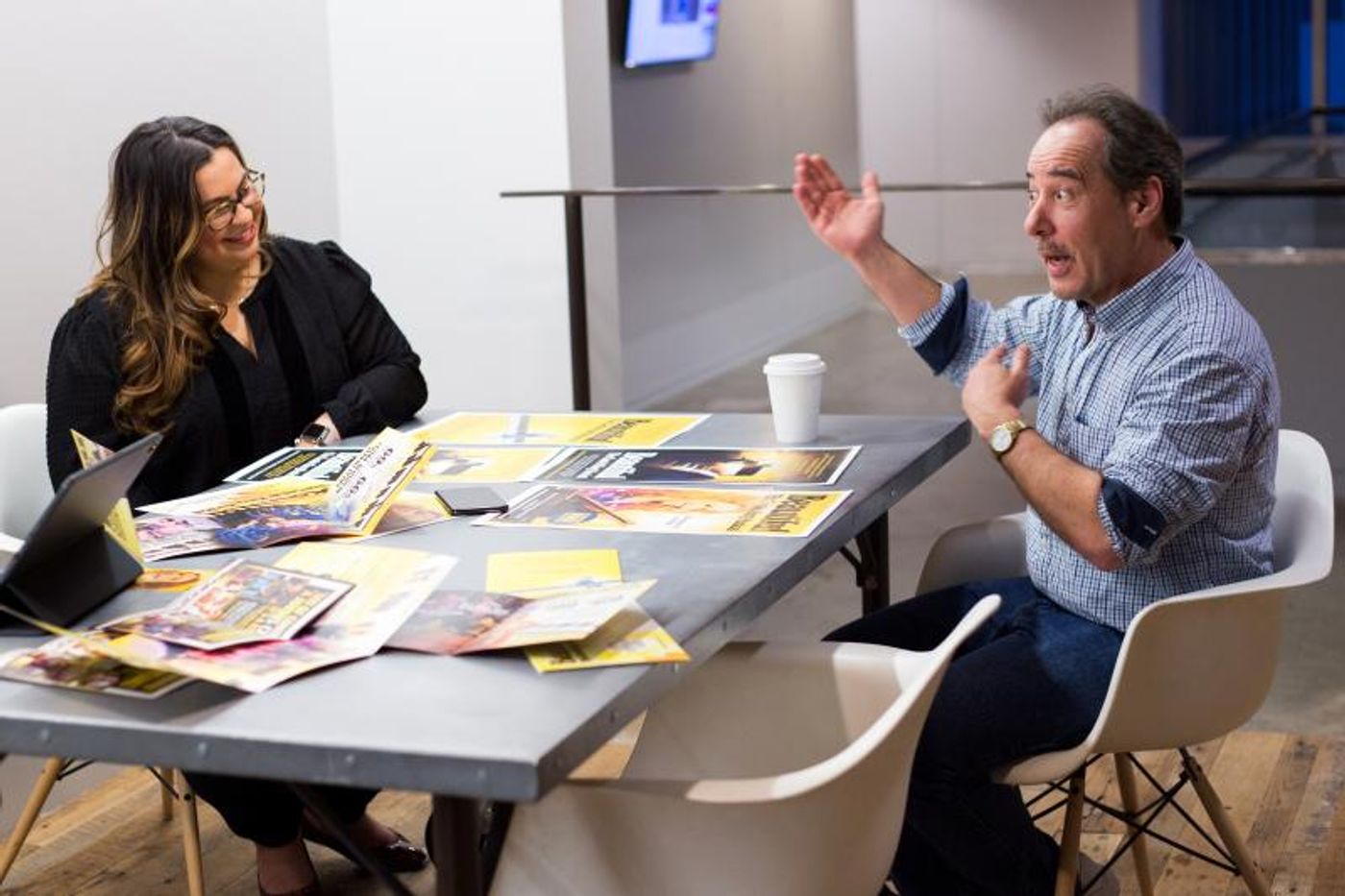
Let's start at the beginning, as we look at the various ways that the art and promotion have evolved, where did it start?
T: From the beginning, when I read just 20 pages, I said 'Oh I got this.' And no lie, I knew it was going to work. In the world we live in now, they are derisively called "jukebox musicals". There are not always jukebox musicals. There are musical biographies, there are musicals based on albums like American Idiot or the Who's Tommy. Then there are Jukebox musicals, which would've been called 'revues' 40 years ago.
Biographies are a different animal, and they really work if you're telling me a story I haven't been oversaturated with. When I read this, I knew that the music was a given, because the songs are amazing. What was interesting was there were two stories and it's not the story people often expect.
The first was about the music factories of the time, where these faceless, nameless song writers were creating the music that everyone was singing. If you've seen the show, the audience is sitting there really going along through this educational learning process, and they get a big kick out of it. Then the song starts to play, they're like 'Oh! I know that one.' Not because Carole wrote it, but because it is part of their lives.
Then there's Carole's story. In the show they say this, "Girls don't write music, they teach music." It was a time when a sixteen-year-old girl was not going to say, 'I want to be a song-writer,' and actually do it. She did. She was shy; she didn't think she was anything special. She takes this journey from teenage song-writer, she meets the boy of her dreams or so she thinks. They get married, they have kids, they settle down, she's successful, and that's all she wanted. Then it all falls apart, and I won't go into all the details....
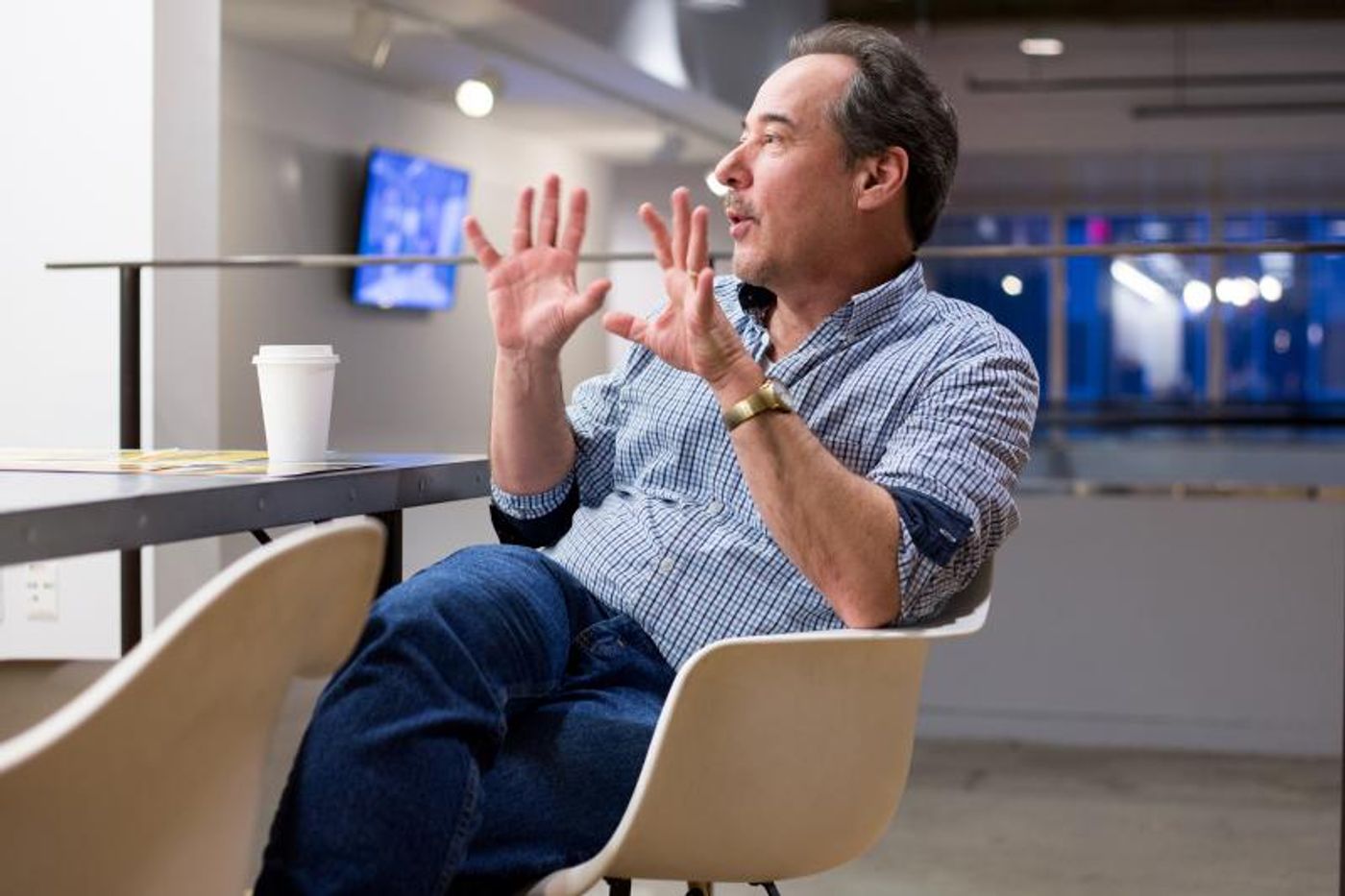
No, please leave something for future audiences to be surprised by!
T: She has to find her own voice and actually sing on a record, and it resolves in Tapestry, which is a brilliant way to end, because that's the highlight. Those two things make audiences say, 'Wow. There's so much happening here.'
You got all that from just the first 20 pages?
T: Obviously, I read the whole thing, but right off the bat, all of the structure worked. The books of musicals that are based on people are always under-rated, because the songs can't change, so the book has to be good.
We quickly positioned it as a young Carole King "in the Summer of 1960 a teenage girl from Brooklyn walked into a Manhattan Recording Studio and started writing the songs that would shape a generation. Her name was Carole King, her story is Beautiful." You're like, 'Oh!'
The 'J' words are our cues here. 'Journey' was in everything we were going to do. This is a journey from teenage songwriter of A Natural Woman, and how she went from this innocent girl to this music icon.
The first art - as much as I love this, and its innocence, it is slightly quiet. It's a low introspective and personal, and the joy was kind of missing. So that is the other 'J' word. 'Journey' and 'Joy' are key words in this campaign. The fact that you'll have a good time, became more and more important as we moved along, because you want to know she triumphs. It's a hard thing to show because for the most part, she is sitting at the piano.
Was that focus-grouped when you landed on stuff like 'Journey'?
T: No, actually in year one, it was instinct. We have great producers, who listened, and ones who say, 'What do you think will work?' I personally have worked on Jersey Boys, Tommy, Mamma Mia!, Movin' Out and you learn from all of them. You learn from the musical that has existing music is 'Okay, and what's the story you're trying to tell me?' If there is a good story, then you've really opened it up. If it's just got the music of this group you love and nothing else, you're going to get the people who love the group, and nobody else is coming.
We did do focus groups post-opening and post-Tony Awards. We had hit a nice level, we were doing well. What we wanted to know was - what do people really know about our show? We found out that the people who were resistant said, "Well, it could be she just plays the piano most of the show, and not much else is going on". It made us open up the show in the art, and get her away from the piano, whenever we could.
How do you know if that's succeeding as a selling tool?
T: It's never in a vacuum. TV and Radio are a huge part of this campaign, because we've been blessed with really good actresses playing the role of Carole. In a day and age where print is less consumed, you have to go other places - we have audiences that don't even own TVs anymore, which boggles my mind.
We do a lot of direct mail on the show. Early on we did a direct mail piece when it came out in San Francisco and this was the first time anyone in New York saw anything. It was a simple piece designed to say that there's a lot of story here, it's personal, it's got the songs you want, and then that there's a lot of show here.
This was one of the most successful direct mail pieces I have done pre-opening. Jessie Mueller is now a Broadway star, but at the time Broadway insiders knew her name, but she was not a star.
There were days we were saying, "Wow! We sold two thousand tickets today," and we don't even have a marquee up yet.
Everything we've done is always is expanding on, 'There is a story here.' It's never a greatest hit piece about, 'See all the hits you love,' because you own them on CD, you can listen to them. We know the Tonys were a big help in that just Mueller winning the Tony, it made everyone say, "Oh, the girl is great, I hear the musical's great."
When the original star leaves, does it become less important who is in it?
T: I don't think it really matters as long as you're rooting for the character. The funny thing is, if it was a big star, it probably wouldn't work, because you'd suddenly forget she's Carole King. She's Madonna playing Carole King (not that Madonna is coming into the show). All of a sudden, it's not this 20-year-old from Brooklyn in the 1960's, who's shy and doesn't believe in herself, no, you're a big star.
D: The show and the character of Carole King have always been the star. And that's been part of the success of Beautiful. You could see that even in early art iterations. We tried to never make Jessie Mueller or anybody else playing Carole King the only star of the show, and that's helpful for long-term success.
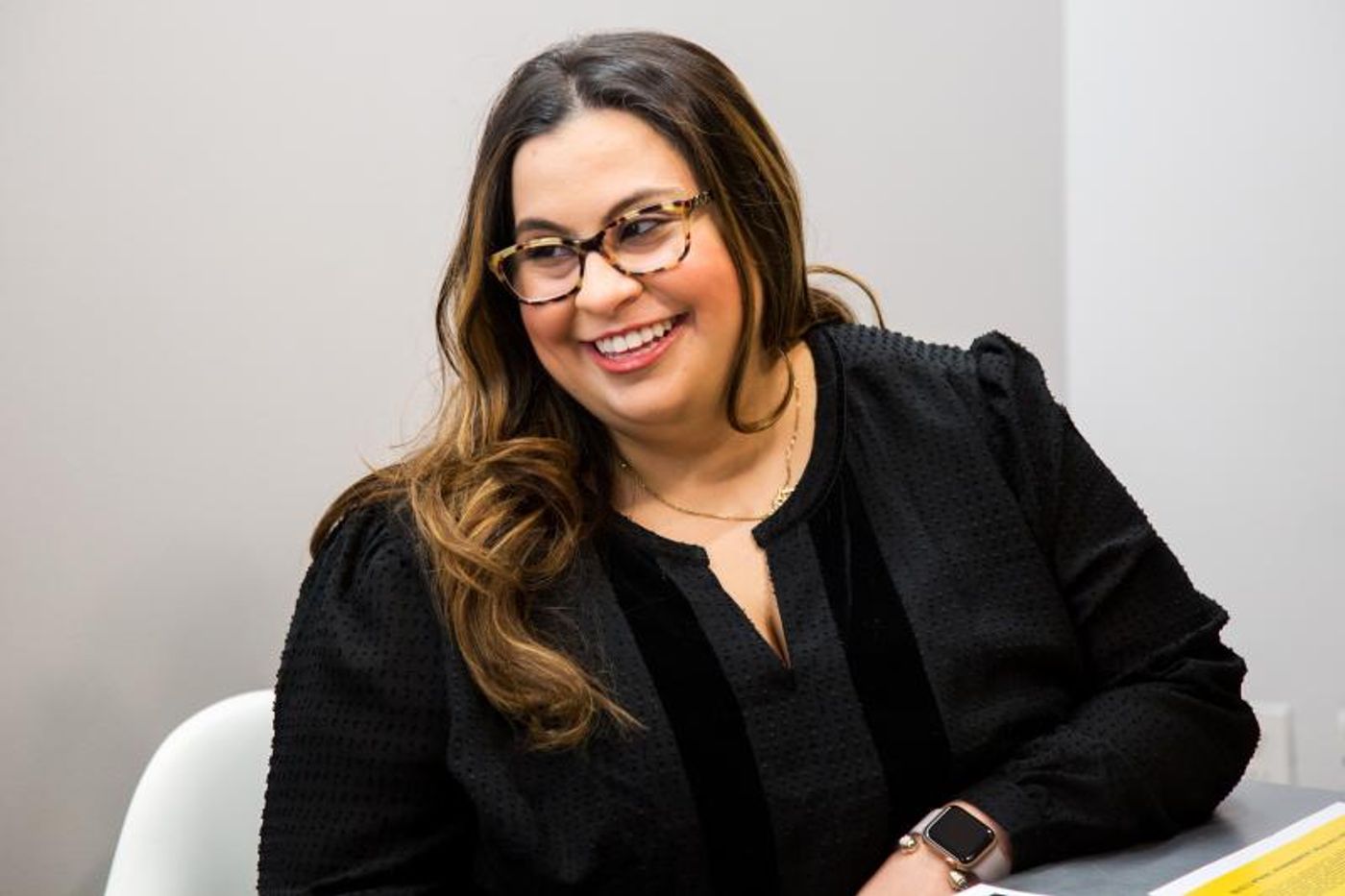
T: Of course, we know the stars will leave. You might also have noticed a subtle change that in our earlier art - people didn't necessarily think that was Carole King. Carole King, that they know in their heads, is from the cover of Tapestry with a lot of hair, and it's going to be wild and seventies free, where the newer poses do that. That was a focus group thing - we showed them a commercial, and they didn't understand who this girl in the ponytail was.
How many people are in a focus group?
T: The rooms are usually between eight and twelve people. I usually do multiple groups - say two in Long Island, two in New Jersey, two in Manhattan. Avid theater fans go early no matter where they live, but the highest concentration of Manhattan avid theater-goers go in the first month. If they're not going early on, they're not going in month nine, unless they've been told by 50 of their friends because it's kind of fallen off their radar.
The suburban audience has those who come to previews and there's usually a little ramp, where they want to hear from a friend before going. It's not the reviews as much as, two of their friends went to a preview and saw it. Their sister said, 'Hey I got this in the mail, it sounds fascinating.' And they plan to see it two or three months later.
If you get different answers from the different focus groups, do you then do different marketing in say the city vs. the suburbs?
T: No, because theatergoers are theatergoers. I think what we use focus groups for more than anything else - there's this myth about what people know...
We're so inside the theater world? You'll think, 'Well, everybody knows that Joe Smith directed this,' and they don't. They might know, 'Oh, I love that musical,' but they don't know the director's name. So, when you say things like, "From the Director of Book of Mormon," it means much more than the director's name. We used to think years back, 'Well, everyone knows Harold Prince directed this, this, and this.' Then you find out, well, actually no, we have not. 'Harold Prince, uhm, yeah, I've heard of him.' They don't eat, drink, and...just like you don't eat, drink, and sleep a movie perhaps. A movie comes and it goes and it's, "Oh, yeah, I never saw that.' You're not thinking about going to the movies every day, they're not thinking about going to the theater every day.
Is the audience now much more tourists than locals?
T: It's clearly more tourist, and most shows end there in two years or so.You come to New York and you want to know the language barrier won't be a problem, if it's international tourists. You want to know that it's good and your friends haven't seen it yet. Tourists tend to increase the longer you're out. I would say we've never been a huge Manhattan show, we've been a big Long Island, New Jersey show.
D: I think the great part about that is that Long Island and New Jersey are huge and they're here. New Jersey Suburbs make up 16% of the audience - that's 40% higher than the Telecharge / Broadway average of 11%. Long Island suburbs make up 11% of our audience - which is 60% higher than the average of 7%.
Even just walking in that theater, I think one of the other shifts that we've seen in the beginning were people who grew up with Carole King's music. Now, we're seeing a slightly younger demographics start to come into those theaters. By younger, I mean 45.
What countries are the biggest, as far as audiences are concerned?
D: Outside of the USA, the top countries where our audiences come from are Canada, the UK, Australia, Israel, and Japan.
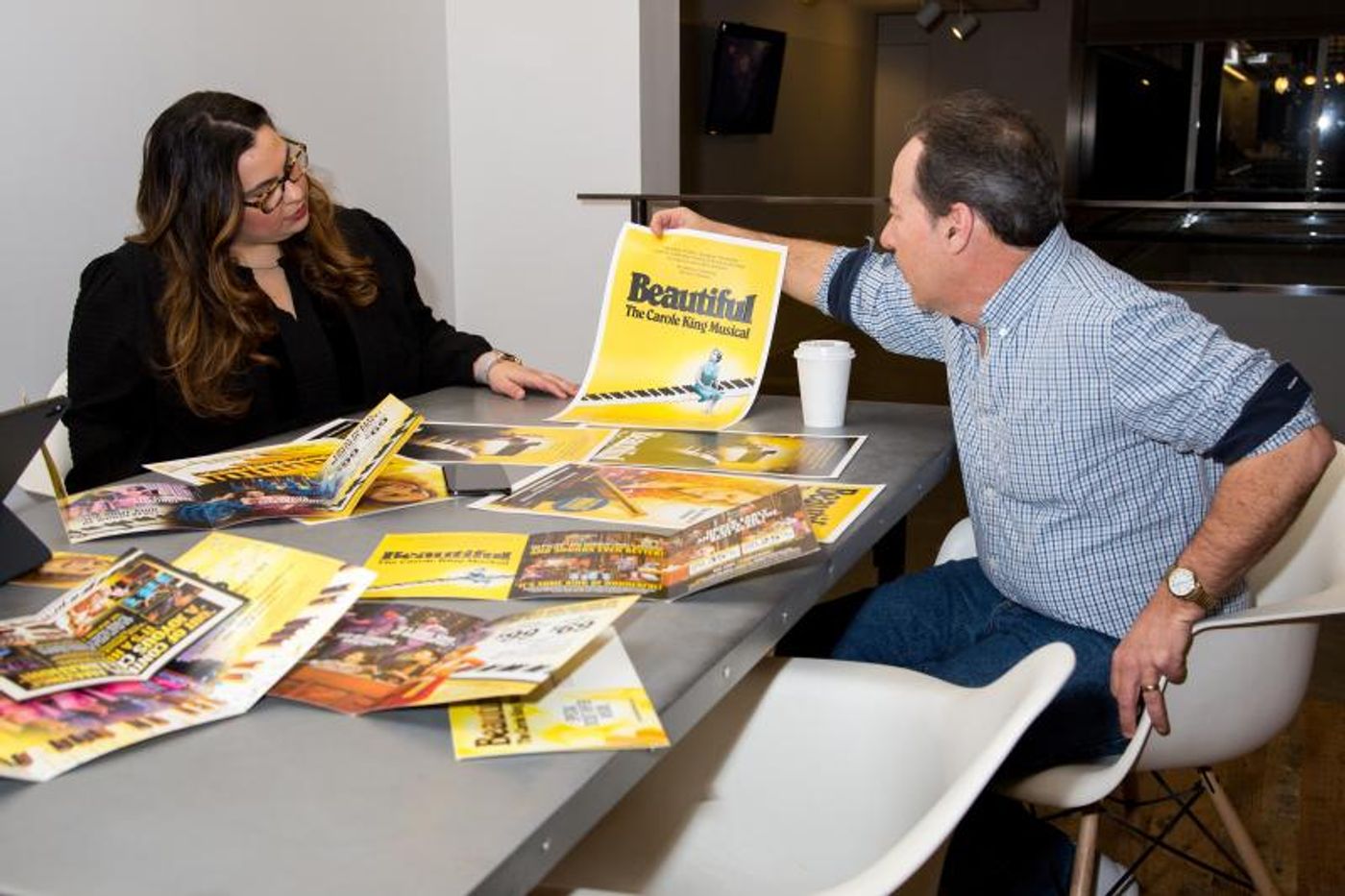
T: It's not something that we spend a lot of money again saying, 'Oh, you know what? We're much bigger in the Netherlands than we are in France.' Because in overall percentage, it's going to be really small.
D: One of the other things that's helped to expand the audience in terms of where they're coming from is the National Tour, which launched a year-and-a-half after we opened on Broadway (and is still going!).
We've had a very successful engagement on the West End, followed by a UK tour, and sit-down productions in Australia and Japan. That has helped to increase the show's brand awareness, because as much as Broadway feels global to us in New York, the rest of the world is not thinking about what is happening in these 41 theaters every day.
How closely does it mirror or not other shows like you mentioned Jersey Boys or someone's thinking, 'Year six of Jersey Boys, we did more TV and less print...'
T: I've done this for about 30 years. You learn what worked and didn't work, but every show is different. Again, this is more female-based than say Jersey Boys, which is more of a male story of these four tough guys. I would say your audience demographic breaks up almost the same. For years, it's cliché, "We got to get a show that the women will take their husbands to, otherwise they'll have to go with their girlfriends." They would go to see Beautiful with their girlfriends, but they would go to see Jersey Boys with their husbands, because my husband will kind of like it because they're tough and they like Jersey guys.
The media you can buy when Jersey Boys opened versus today has changed. We watched TV in our houses, and we read The New York Times. It changes every month, the devices you use. Every marquee in Times Square and every billboard was flat, now half of them are digital. Now you have to be thinking, 'What moves up on in that billboard with no sound?
D: I think the most striking thing for me is that I have never worked on a show that has word of mouth that's as strong as Beautiful's. I have never gone anywhere in New York and said the title without an effusive response from people back, either saying that they've seen it, they've seen it multiple times or they'll tell you things like, "My best friend saw it three times, I can't wait to see it."
T: You go all over the country. You travel for all the productions and shows, so you hear it. I hear it here.
D: We've done quite a bit with the show around the country. One of the segments that we market to early in advance and across the country is the groups market. Folks who are bringing in groups of people from Nebraska to come see Broadway shows every year on their bus tours or just any kind of other group that comes to New York once a year.
We've done quite a few performances on national television that I think have helped to give you a glimpse into Beautiful that is really compelling, and that goes back to how good the show is.
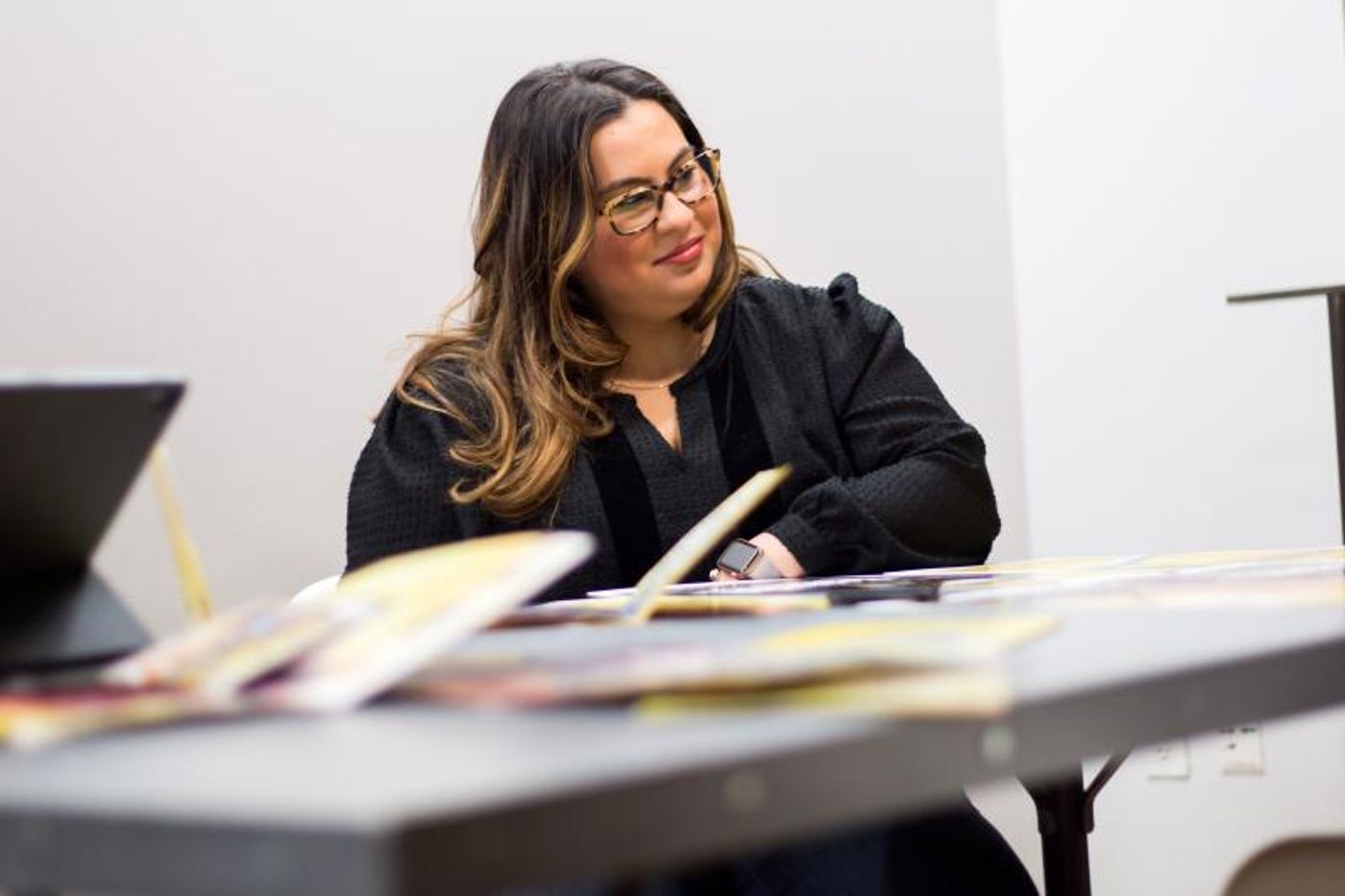
Do you know what percentage is groups?
D: Our strongest percentage of groups making up our gross has been 19%, but on average we live closer to 5% - 10%.
T: If you're in a bigger theater, with a huge mezzanine and balcony, you can get more groups, because groups don't want to pay full price. If you're in a thousand-seat theater and it's all in the orchestra, you don't want to be discounting the best seats in the house until the groups are in.
I'd be curious if groups are trending up or down through the life cycle?
D: I think there's been a lot of consistency -
T: Beautiful is not a title easily understood, because it's one of her more obscure songs. We get a good number of groups in early, because they already know what that is. Then post-opening, the next six months to a year, if the show's a hit and the reviews are good, we don't have to worry - the groups will go up. Then they'll settle down and stay pretty much in an area for the rest of the run of your show. Even stars don't tend to get groups in, because usually they're there for a short time. Oh, for eight weeks only you're playing Mick Jagger and people love you. By the time they get their groups organized, he's already out of the show.
Are repeat buyers something you actively market towards or just it happens because the show is good?
T: I think it's subtle, as opposed to 'Isn't it time you saw it again?', which would be heavy-handed. We now communicate with people we know who have bought tickets and we collect them from our website and things like that. We know every show that runs long has repeat viewers, because it's a safe bet.
Does the marketing message continue to change and evolve?
T: This show was all about the journey. Now we're having a parade. There are times that you want to get noticed again. Maybe you buy in places you haven't been before, or you change the TV concept, which we've done a couple of times. Usually, it's not just a random, 'Let's change this line and people will notice it,' because no one is looking at the advertising that way.
Years back, you'd open the listings in The New York Times and we would have producers say, 'We have to change that quote in there, because people have seen it.' No one's reading your A, B, C's like you are. No one will know we changed it. But when we change something on the show, you change it in a bunch of places for a reason. I'm going to know it's different because I wrote it, but no one else is going to know.
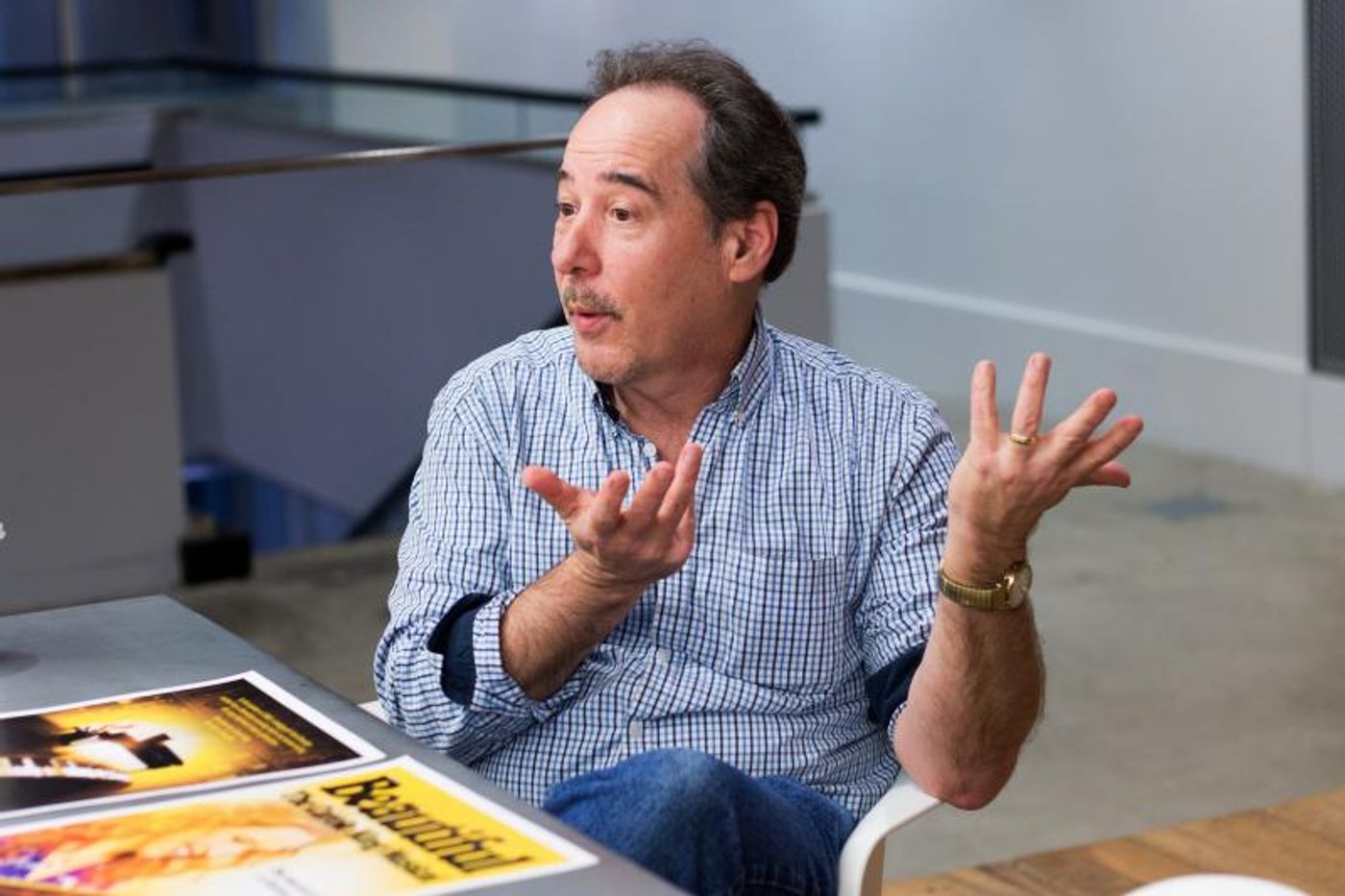
How do you know when a certain message or marketing isn't working?
T: It's never in a vacuum, you have TV, you have marketing, you have digital, you have a billboard. You don't really know exactly what closes the sale. Direct mail you know, because it's got a code in it and it's usually in the market by itself.
D: One of the challenges of being a marketer and advertiser is being true to the show, true to the property that's on stage, but also finding what's the hook to get people in the theater. That's always a balance for any property, but in particular for a story like Beautiful that is so nuanced and so complex.
T: Very often I'm working on 15 and 30 second sound bites for radio and TV. Early on, right after opening, after this ran, and direct mail went out, we started to build a base describing the plot, which boiled down to: She wrote the songs that made other people famous. It was how we kicked it off, and that's how we got people to understand,
Were there any specific things that have either you thought were going to work didn't, or you didn't think were going to work but did?
T: Diana had this idea after the first summer we were opened, that I said, 'Oh, that's a great idea, Diana. This is going to be great.'
D: It was probably my favorite thing that we have ever done on Beautiful. Beautiful was the first show in a decade that won the Grammy Award for Best Musical Theater Album, but didn't win the Tony Award. For many properties that came before us, they had won a Tony (we didn't) - it was great, that was their big news that they could really shout about.
That was a big piece of news for us, you can even see we added it into our creative campaign for a while- 2015 Grammy Award Winner. We thought a lot about ways that we can celebrate this that felt really unique to what the best thing about the show is, which is the music.
We partnered with SummerStage to do the first ever Broadway Concert in the middle of Central Park. It was phenomenal to be outside performing to a packed crowd of 4,000 people. It allowed us to stay true to the music, which has been one of the greatest selling tools that we've had for the show. It also allowed us to get back in the news with national press almost two years at that point into the show's run. It was on the Today Show the next day so millions of people across the country got to see it.
T: It made it feel very much to me like Carole King and the show were a part of the New York fabric, without even advertising about it.
D: We loved it. I think that's another great point that you bring up, Tom. It's a story of a local girl, and there's something really cool about that. She's a New York hero!
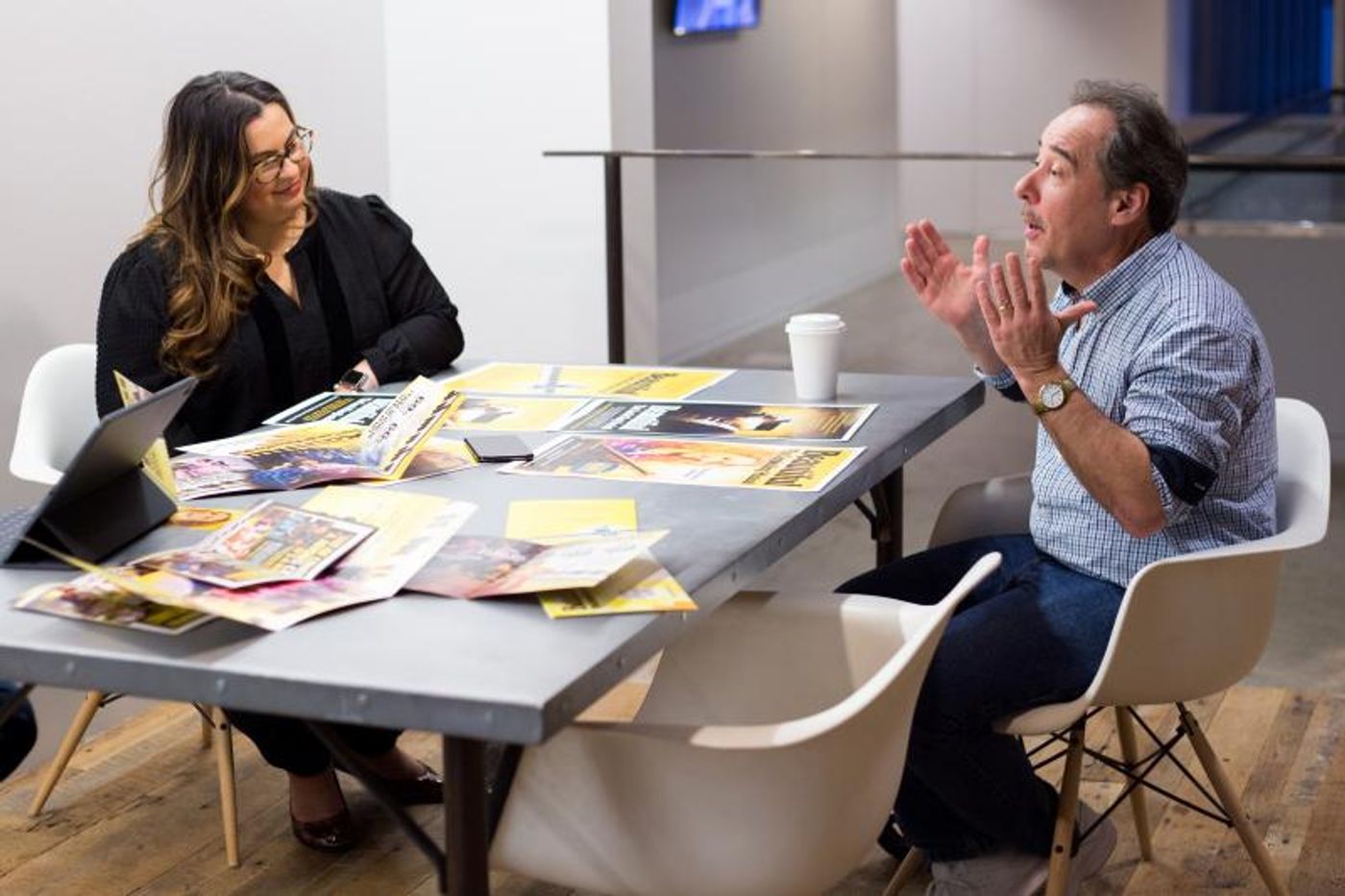
Does your marketing change at all, when there's other female bio-musicals as there's been a recent spate of like The Cher Show, Summer...
T: Who? You're aware of it, of course, because you want to not be crashing into places. There was a time where Summer opened, Cher was coming in, and we were playing. Interestingly, all three women have their own distinct sound and persona that are really different from each other. No one would ever mistake Donna Summer for Carole King, or Cher for Carole; because they're totally different stories and personas.
But you have to be aware - is this going to pull from my audience or not? Sometimes you embrace it. It's not like you usually pick one show to see this year and you're not going to see anything else. Competition is helpful at times, but if something becomes a behemoth it becomes a problem.
D: I would say that it would be an embarrassment of riches, if every theater on Broadway had a show in it that was about a strong female at the center. We are really lucky in that sense on Broadway that we have so many more stories being told about women, because the world is hungry for it. I think that it will only help Broadway, at large, when more stories that cater to the 66 percent of our ticket buyers.
What challenges are coming up with this over the next few years?
T: Keep it fresh, keep it running, keep it relevant. There are things that work in the first couple years that don't work in years seven, eight, and nine. We're trying to draw audiences over 50 for sure, because they know the music. Forget the fact that Tapestry was 1971, all those songs that they wrote that were big hits were written 10 years prior to that.
We have to age the music down a little bit for our audience. We're not going to be able to get 16-year-olds on the music. We can get them on the, 'This is a story of young girl who believes in herself, when no one else did and made her dreams come true and found her voice and became a music star.' Arguably, that could be the Ariana Grande story, if you called it Beautiful the Ariana Grande Story. We'd have to rewrite a bit.
We know when it's time to shift because the ads become wall paper, if you've seen that for years, and you hear it, and you ignore it. Like if you saw the same car commercial on TV for three years straight, you don't even notice it's on. You've seen that before.
D: I think for me, the focus over the next year is making sure that we are appealing to younger potential ticket buyers. We're in, what some people would call a fourth wave of feminism right now, where putting women's stories at the forefront is really important. We have that. In that sense, the music becomes a gift with purchase, because they'll walk into that theater expecting a story of a strong empowered woman and then they're probably going to also walk out saying, 'I knew that song.', 'I knew that song, too,' 'That's a great song.'
T: It's a show that has taught me some things I didn't expect - my fear was that, 'Are people going to think it's too small, so intimate?' And people walk out of that theater clapping their hands, and it's amazing how highly they like it. I think it's because she triumphs. It's not because there's a big mega mix with 50 people on the stage - it's her her triumph into the curtain call.
Photo Credit: Jennifer Broski
Videos

